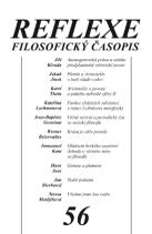Banker Bulstrode Does Not Do Wrong Intentionally. A Case of Self-Deceptive Wrongdoing
The paper aims at a thorough analysis of a certain type of moral wrongdoing, one frequently neglected in contemporary ethics, namely of action accompanied by self-deception due to which the agent lacks a clear intention to do wrong, therefore not acknowledging his/her guilt and not regretting it. Banker Bulstrode from George Eliot’s Middlemarch serves as a paradigm case for the inquiry. The first part of the paper describes the mechanism of self-deception in action and reveals the specific character of this type of wrongdoing. The second part develops an argument that in spite of the missing intention, the wrongdoing is voluntary and the agent can be held responsible for it.
Backlinks: Reflexe 44
